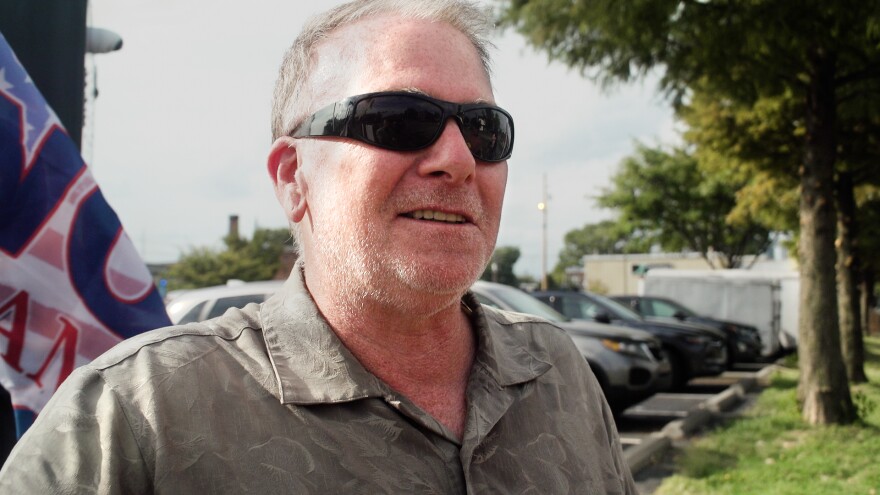
While the No Kings rally in Evansville is beginning to taper off Saturday afternoon, the climate is a bit tense at the corner of MLK and Vine Street.
A group of about six supporters of President Donald Trump are gathered and drawing the ire of a few No Kings protesters.
Losing her patience to likely impertinent questions and comments, the Trump supporter turns her back on the protester, who continues, undeterred.
Until Clint Kemper of Evansville stood between them, and started engaging with her. He acknowledged issues with the administration of Joe Biden.
“I think talking to people from different viewpoints as mine helps broaden my horizons on what the other side thinks,” he said. “And it helps me talk to those people and get them to sort of swing, get that pendulum to swing back towards my viewpoint, so to speak.”
Kemper has also been talking with Brian Peas, who is holding a sign that says “No Kings but the King of Kings — Jesus.”
“We're talking about the differences of opinion,” Peas said. “And we're doing it cordially.”
Andrew Buck Teaches Sociology at the University of Southern Indiana with academic courses about protests.
He said cordial discussions at such events are possible — though such events are not designed for this.
“Protests, rallies and other contentious gatherings tend to be transgressive because they disrupt the normal flow of affairs,” Buck said. “They fill spaces, they block roads … it's designed to draw attention — the irreverent symbols, the irreverent language, is designed to draw attention to the issue.”
“Irreverent language” at this event included accusing Trump supporters of supporting pedophiles.
“It's a form of political theater that can hinder civil discussion of the issues,” Buck said, and it can also lead to polarization and entrenchment.
At the protest, a woman identifying herself as ‘Ally’ is talking to Brian Pease. An important topic to her, she’s comparing deportations of undocumented individuals in the Obama, and Trump Administrations.
“Under Obama's administration, he had the highest number of deportations of illegal immigrants. However, you didn't see ICE marching in the streets,” she said, as Peas listened. “You didn't see mothers and their children fearing for their lives.”
Rallies and protests can prompt these discussions — and eventually change hearts and minds. Buck offered the topic of gay marriage which was at one point not fully supported by either political party.
“But that changed through contentious gatherings and protests and rallies relatively quickly,” he said. “Within a few years, you know, there had been a real big shift in public opinion on that issue.”
While Buck doubts the effectiveness of discussions at a protest, he said historically the real work of learning about other viewpoints happens after things cool off.
“I think what happens is people go home and they talk about these issues with their families, with their friends,” he said.
And viewpoints change gradually, or at least move toward acceptance of others. These three with differing ideologies managed to have some useful discussions despite the charged atmosphere.
“We can try to discuss and try to come to terms, or at least agree, that I don't know certain things. They don't know certain things," Peas said. "We have to come to equal definitions so that we can define, you know our words, and we know exactly what we're talking about, of the issues that are important to us all.”

Support independent journalism today. You rely on WNIN to stay informed, and we depend on you to make our work possible. Give to grow our local reporting today. Donate

